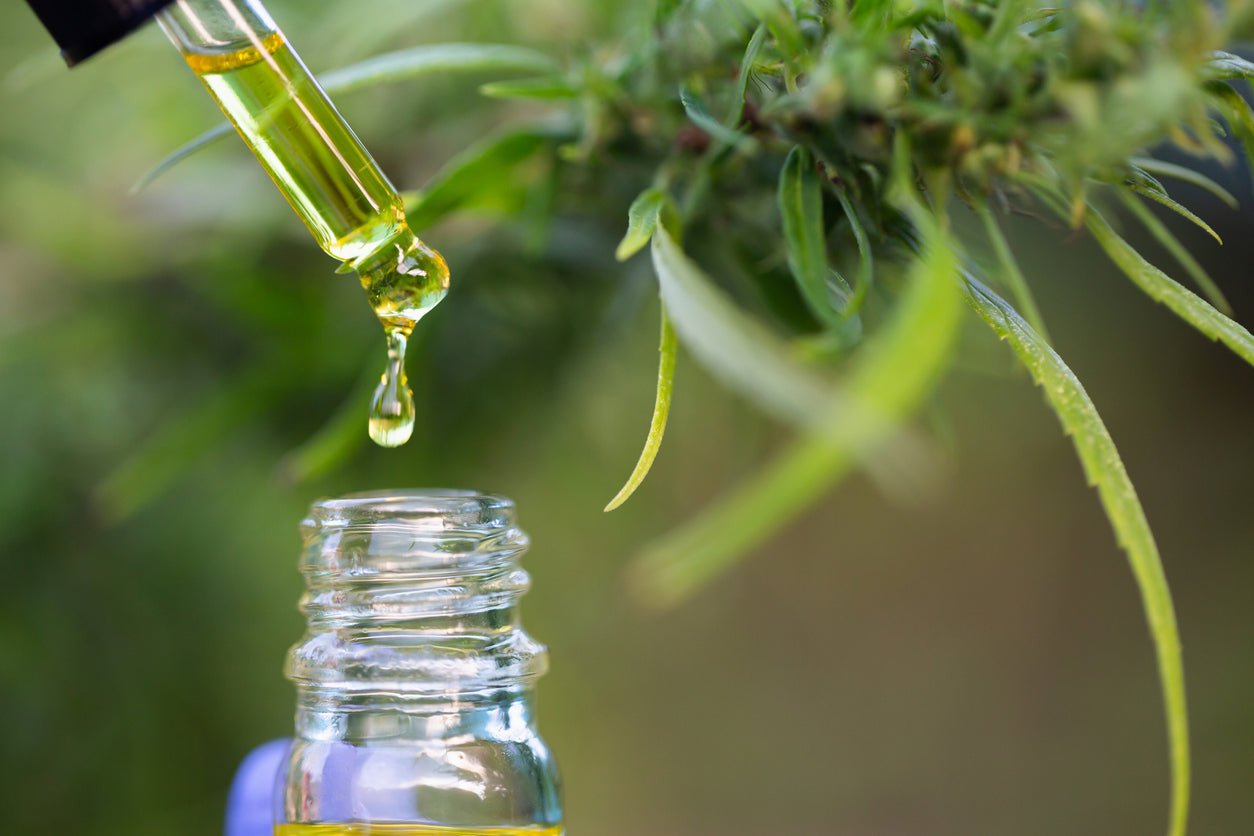While hemp-derived cannabinoids such as CBD and delta-8 THC are being manufactured and sold across the country, others such as hydroxy-hexahydro cannabinol, or HHC, have largely escaped public attention. HHC is not as readily available through retailers as other hemp extracts but offers great potential for treating many conditions.
What is HHC?
Hydroxy-hexahydro cannabinol, better known as HHC, is a semi-synthetic cannabinoid. HHC was first created in 1944 by American chemist Roger Adams while searching for the simplest compound that would still bind to receptors of the endocannabinoid system and produce cannabis-like effects.
Adams used a process known as hydrogenation, a method similar to the one used to make margarine from vegetable oil. The hydrogenation process added hydrogen molecules to Delta-9 THC, slightly altering the molecular structure by breaking one of the cannabinoid's double carbon bonds and creating the compound known as HHC.
The discovery of HHC was significant at the time for early scientific research on cannabinoid receptors and the endocannabinoid system. However, aside from being useful for mapping binding sites in detail and having a good safety profile, the compound received little attention or interest. The relatively recent interest and research into the effects of lesser-known cannabinoid compounds and derivatives, such as delta- 8 THC, delta-O THC, and delta-10 THC, has created renewed interest in HHC.
How is Hydroxy-Hexahydro Cannabinol Made?
In the race to discover new cannabinoids and how they interact with the human endocannabinoid system, HHC is the latest of many lesser-known compounds to gain attention. While Adams used THC derived from marijuana when he first discovered HHC, today, the manufacturing process typically uses low THC hemp plants. Hemp plants have less than 0.3 percent THC but contain all the other cannabinoids found in cannabis.
In the first step of the process, cannabinoids from hemp plants are extracted and isolated through one of several methods. Once separated, a precise amount of hydrogen is added to the cannabis-derived compound, altering its chemical structure. A metal catalyst, such as nickel, palladium, or platinum, is then used to cause a reaction with the compound.
The metal catalysts increase the chemical reaction speed without leaving traces adhering to the cannabinoids, which could impact the final product. In addition, this chemical reaction changes the cannabinoid's chemical properties in a manner that wouldn't occur naturally and influences how the body absorbs the compound.
What Are the Effects of Hydroxy-Hexahydro Cannabinol?
While there is a lack of consensus on the potency of HHC, of the cannabinoids that have recently gained attention, it most closely resembles delta-9 THC and has the greatest potential to produce similar effects. Part of the confusion surrounding HHC is that when the compound is manufactured, two types of molecules, 9R HHC and 9S HHC, are created, which interact differently with the body's natural endocannabinoid receptors. Because of a slightly different molecular structure, 9R HHC actively binds to receptors, while 9S HHC does not bind as well.
When 9R HHC binds to endocannabinoid receptors, the effects are similar to delta-8 THC but require a much higher dosage. Generally, delta-8 THC is considered to be about half as potent as delta-9 THC. While milligram per milligram HHC is less powerful than delta-8 THC, the compound can produce THC-like effects in high enough doses.
The close resemblance in chemical structure between HHC and delta-9 THC may be responsible for users reporting effects similar to delta-9 THC.
Is HHC Legal?
The 2018 Farm Bill passed by Congress federally legalized hemp production and the manufacture of hemp-related products. For decades, the federal government had placed hemp in the same category as marijuana, making all cannabis products and derivatives illegal.
The farm bill allowed the commercial cultivation of hemp and placed no restrictions on the sale, transport, or possession of hemp-derived products. Hemp contains the same cannabinoids as marijuana, although in varying amounts. The 2018 Farm Bill removed many of the obstacles researchers faced when studying cannabinoids and cannabinoid derivatives, such as CBD and HHC, and advanced the development of new treatments.
Following the rapid growth in the popularity of CBD, products such as delta-8 THC, delta-O THC, and other hemp-derived cannabinoids began to appear in online and retail shops across the country. Proponents of the legality of these products base their stance on the fact that they are hemp-derived products manufactured from legally grown hemp.
But in some states, efforts are beginning to restrict the possession and sales of CBD, delta-8 THC, HHC, and other hemp-derived cannabinoids. The argument for restricting these compounds is based on the Federal Analogue Act, a section of the United States Controlled Substances Act. This act allows for any chemical for human consumption that is substantially similar to a Schedule I or II drugs to be treated as a Schedule I controlled substance.
Currently, there are 18 states that have enacted legislation to restrict or ban delta-8 THC and hemp-derived cannabinoids in some way. In contrast, others, such as North Dakota, have entirely banned "the isomerization of cannabinoids to create [THC] isomers" This ban also prohibits the sale of hemp products that contain isomers which include delta-8 THC, delta-10 THC, HHC, and other hemp-derived cannabinoids.
New York recently drafted similar proposed hemp rules which restrict the production and distribution of delta-8 THC and prohibit hemp processors from using cannabinoids created through isomerization in the manufacture of any hemp products. The legislation would also prohibit selling or distributing any hemp products that contain "synthetic cannabinoids, or cannabinoids created through isomerization," including delta-8 THC, delta-10 THC, and HHC.
Delta-8 THC vs Hydroxy-Hexahydro Cannabinol
Like the other psychoactive hemp derivatives available, the amount of hydroxy-hexahydro cannabinol available from industrial hemp is extremely small. HHC's molecular structure is very close to that of delta-9 THC, and the compound binds to receptors in the endocannabinoid system in a similar manner. While there is still much to learn about HHC, many people have found that HHC produces effects similar to delta-8 THC but with a euphoric effect that is more like delta-9 THC.






